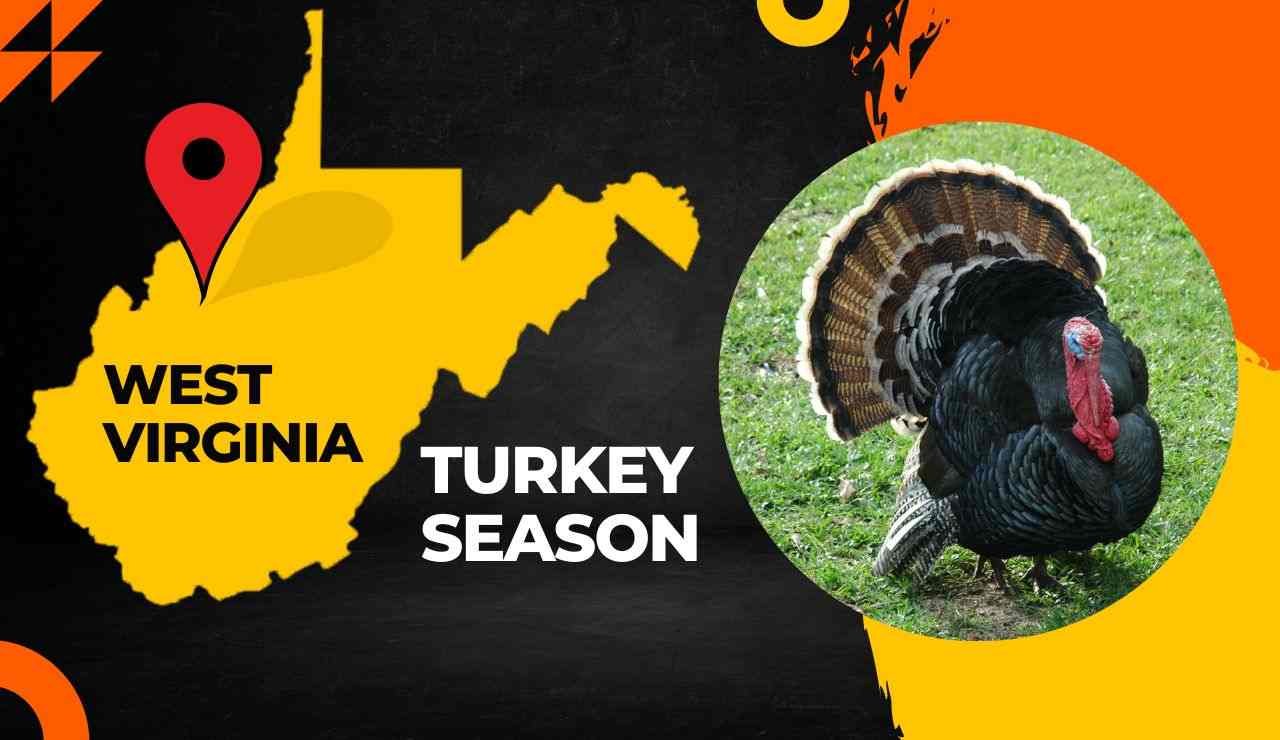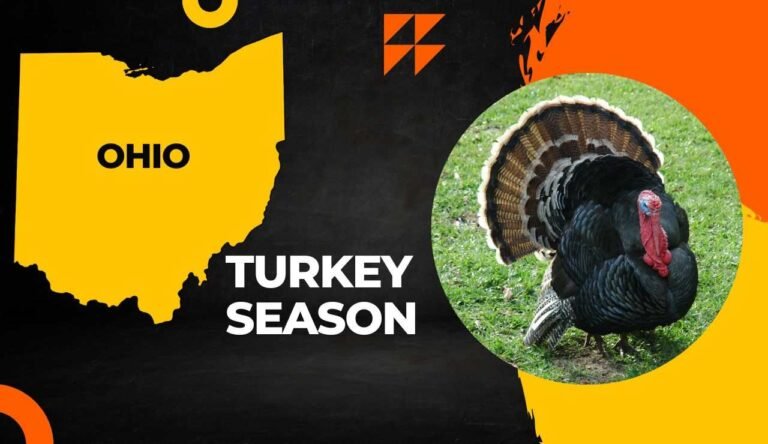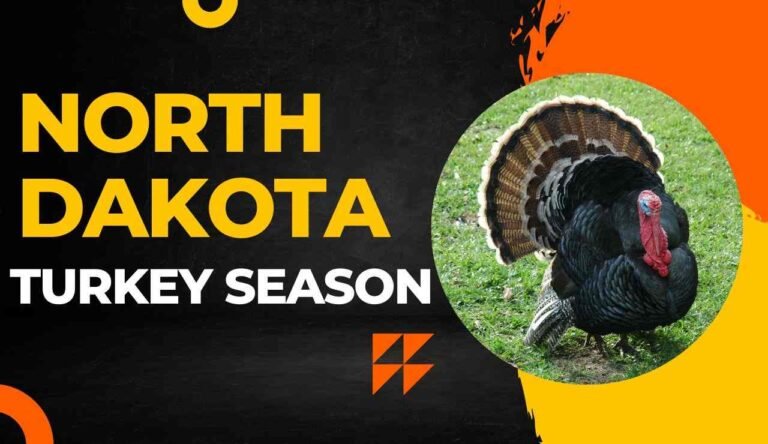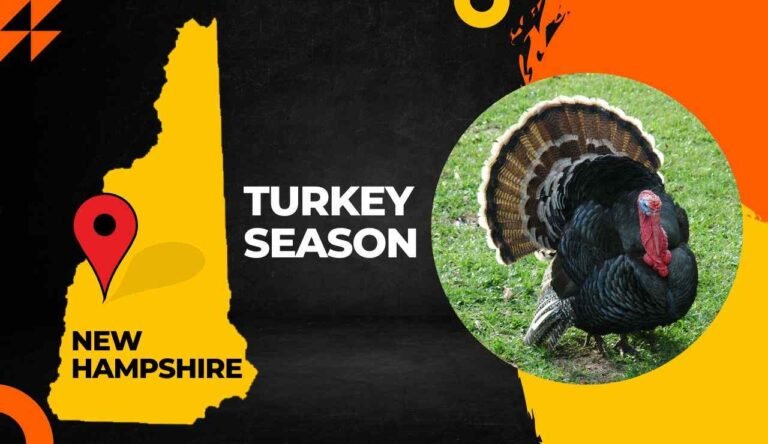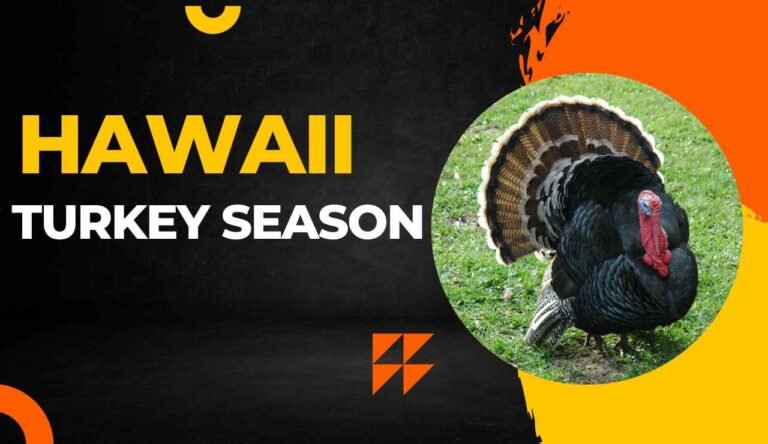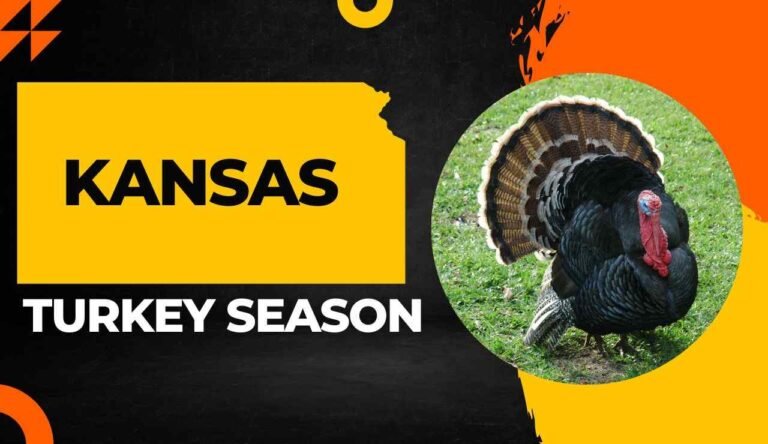West Virginia Turkey Season 2023: WV Turkey Hunting Guide [Dates, Bag Limits, Regulations & More]
The West Virginia turkey hunting season is about to start now that spring has arrived! Hunting season runs from April to May, and the autumn season runs from October to November. As the weather heats up, hunters throughout the state are excitedly preparing for the season. Hunting turkeys is an exhilarating outdoor pastime that calls patience and expertise as hunters attempt to outwit one of North America’s wiliest game birds. This page will explore complete details on the season dates, licenses, bag limits and regulations.
West Virginia Turkey Season 2023
The two hunting seasons for turkeys in West Virginia are spring and fall. The spring gobbler season consists of a two-day youth season and an approximately five-week regular season. Hunters may take one bearded bird per day and a maximum of two per season. October marks the beginning of the fall turkey season, which varies by county. One-week seasons are permitted in certain counties, whereas two- or four-week seasons are permitted in others. A single either-sex turkey may be taken by a hunter during this season using a bow, crossbow, or rifle.
Spring Turkey Season
| WV Spring Season | Start Date | End Date |
|---|---|---|
| Spring Turkey (Statewide) | 17-Apr | 21-May-23 |
Youth Turkey Season
| Season | Start Date | End Date |
|---|---|---|
| Youth Turkey | 15-Apr | 16-Apr-23 |
Fall Turkey Season
| October 8-16 (*TBC) | |
|---|---|
| Barbour | Boone |
| Braxton | Cabell |
| Calhoun | Clay |
| Doddridge | Fayette |
| Gilmer | Harrison |
| Jackson | Jefferson |
| Kanawha | Lewis |
| Lincoln | Logan |
| Marion | McDowell |
| Mercer | Mingo |
| Monongalia | Pleasants |
| Putnam | Raleigh |
| Ritchie | Roane |
| Summers | Taylor |
| Tyler | Upshur |
| Wayne | Wetzel |
| Wirt | Wyoming |
| October 8-16 & From October 24-30 (*TBC) |
|---|
| Berkeley |
| Grant |
| Greenbrier |
| Hampshire |
| Hardy |
| Mineral |
| Monroe |
| Morgan |
| Nicholas |
| Pendleton |
| Pocahontas |
| Randolph |
| Tucker |
| October 8-16 & From Oct 24-Nov 13 (*TBC) |
|
|---|---|
| Berkeley | Grant |
| Greenbrier | Hampshire |
| Hardy | Mineral |
| Monroe | Morgan |
| Nicholas | Pendleton |
| Pocahontas | Randolph |
| Tucker | Webster |
Note: *TBC means to be confirmed, and tentative dates are mentioned.
Bag Limits
Hunters can only take one either-sex bird with a bow, crossbow, or rifle during the fall turkey season. The cap is for two bearded turkeys only during the spring turkey season.
WV Turkey Hunting Licenses
Turkey hunting requires a Class A, AB, X, XS, XJ, AHJ, or DT license for residents and non-residents. Class DT license holders must be accompanied by a licensed parent, guardian, or another responsible adult over 21.
| Licenses | Fees |
|---|---|
| Resident Big Game Stamp (Class BG) | $10 |
| Turkey Hunting Stamp (Class WW) | $32 |
| Hunting and Trapping (Class A) | $19 |
| Sportsman Hunting | $35 |
| Hunting and Trapping (Class A-L) | $782 |
| Sportsman Hunting (Class XP) | $45 |
| Apprentice Junior Hunting | $16 |
For the entire list of licenses, you may view the eregulations website.
Turkey Tagging & Reporting in West Virginia
The hunter must either apply a finished field tag on the turkey after it has been killed or retain the tag with them and attach it before removing the carcass from the kill site. The hunter’s name, address, hunting license number (if necessary), date, time, and county of kill must all be included on the tag.
Within 72 hours of the kill or 24 hours after the end of the season, the corpse must be electronically registered and legally tagged before being transferred outside of the neighboring county. The tag must stay on the bird until it is prepared for food. Wildlife killed by another hunter cannot be transported or possessed unless accompanied by a paper tag that includes the hunter’s name, address, date of kill, hunting license number (if necessary), and DNR-issued game tag number (if necessary). The kind and amount of animals must also be included on the tag.
Hunting Regulations
- Hunters may require extra licenses. Hunters with Class E or AAH licenses must have a Class I license to hunt on national forest territory. Handgun hunters require a Class A1 license. This license is only necessary for nonresident landowners hunting on their property and requires a 21-year-old applicant.
- Rifles, pistols, muzzleloaders, shotguns, crossbows, and bows with at least two sharp-cutting edges over 3/4 inches broad may be used to hunt wild turkey, except for Youth Spring Gobbler Season.
- Landowners in West Virginia may shoot turkeys without a license and take the same number as licensed hunters. They may only take the seasonal turkey limit.
- Natural Resource Police officers have seen several common turkey hunting violations, including hunting over bait, hunting without a license or with an improper license, making a false license application, exceeding the number of turkeys taken, having a loaded gun in a vehicle, failing to field tag a turkey, illegally possessing wildlife, and hunting without permission. Hunters who break these laws might be fined.
- Anyone who helps the WV Chapter of the National Wild Turkey Federation captures and prosecute a turkey killer receives $200.
- Fall turkey hunting allows shooting from dawn to dusk. Spring turkey hunting runs from 30 minutes before daybreak until 1 p.m.
- Fall turkey season prohibits using electronic calls and air rifles under.22 caliber, and bait. After 1 p.m., you cannot hunt with dogs, use electronic calls, use bait, take more than one bearded turkey daily, or use an air rifle smaller than.22 caliber.
Note: You may visit the WV DNR website to review the entire West Virginia Turkey Season regulations.
West Virginia Turkey Hunting Season Frequently Asked Questions
When does West Virginia's spring turkey season start?
The statewide spring turkey season in West Virginia runs from April 17 through May 21 in 2023. The 2023 Youth Turkey Season will take place on April 15 and 16.
What is the West Virginia turkey hunting bag limit?
One bearded or male wild turkey per license is the spring season’s bag limit for gobbler hunting in West Virginia. Only one turkey of each sex may be harvested each autumn.
Do I need a license to hunt turkey in West Virginia?
In West Virginia, you must have a license to go turkey hunting. To hunt turkey in the state, citizens and nonresidents must have a Class A, AB, X, XS, XJ, AHJ, or DT license. Holders with Class DT licenses must be accompanied by a legally recognized parent, guardian, or other responsible adults at least 21 years old.
What is the field tagging requirement for landowners and hunters after killing a game animal, and what are the options for attaching the field tag?
Field tagging applies to both hunters and landowners. Before transporting the animal, they must tag it. They must attach the field tag on the carcass and keep it there until the animal is retagged with a DNR game tag number when they arrive at their house, camp, hunting lodge, vehicle, or boat.
- Louisiana Turkey Season 2026: LA Turkey Hunting [Dates, Regulations, Licenses & More] - January 5, 2026
- Kentucky Turkey Season 2026: Latest Hunting Dates, Regulations & Licenses! - January 5, 2026
- Kansas Turkey Season 2026-2027: Latest Dates, Licenses, and Regulations Now Available! - January 3, 2026
